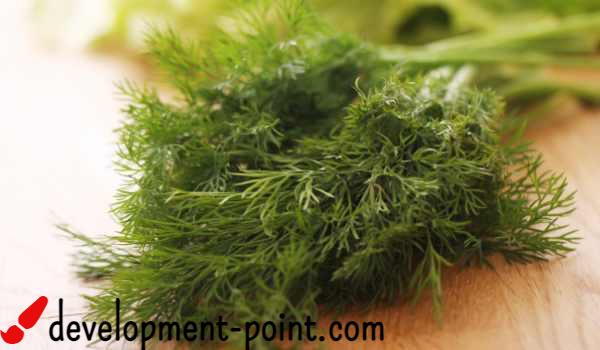Moringa herb benefits and uses: and potential damage
Moringa is one of the most popular herbal supplements especially in recent times. So what are the benefits of Moringa herb and what are its most popular uses, and how can its harm be avoided?
What is Moringa herb?
Moringa is a tropical plant that is considered native to India and Pakistan, but also grows in Africa, Asia and South America, and this plant contains more than 90 protective compounds, including flavonoids and phenolic acids. The leaves, flowers, seeds, and root are used in the manufacture of medicinal products.
Moringa tree
It is worth noting that there are more than 12 different types of Moringa trees, but usually the most used type is Moringa Oleifera. Moringa has gained its fame, due to its benefits in fighting infections, combating malnutrition, and signs of premature aging, which made some call it the miracle plant, or the miracle tree.
Nutritional value
Moringa herb contains many minerals, vitamins and proteins, and it has antioxidant properties, which helps fight free radicals and protect cells from damage. Among the compounds it contains:
- vitamin A
- niacin
- thiamine;
- Folic and ascorbic acid
- calcium
- potassium
- Iron
- phosphorous
- zinc
Among its benefits is that it is very low in fat, and does not contain harmful cholesterol.
Moringa benefits
Moringa has many benefits because it contains a mixture of essential amino acids, phytonutrients, and antioxidants, which may help protect the health of the heart and arteries, improve circulatory activity, and reduce inflammation.
Thus reducing the risk of many chronic diseases such as cancer, diabetes, pressure, and age-related eye disorders. Among its benefits:
1. Promote digestive health
Due to the anti-inflammatory properties of Moringa herb, it has been commonly used in alternative medicine to combat infections, prevent the risk of developing liver diseases, kidneys, and peptic ulcers, and help treat urinary tract infections and constipation.
2. Prevention of diabetes
Moringa contains chlorogenic acid, which studies have shown helps control blood sugar levels and insulin levels in diabetics. This is in addition to the benefits of the isothiocyanate compounds contained in Moringa leaves, in the natural protection against diabetes.
3. Moringa herb benefits for skin
Among the benefits of Moringa oil and its common uses is to help moisturize the skin, reduce inflammation, and speed up the wound healing process, due to the fact that it contains anti-inflammatory, antibacterial, antiviral, and antifungal properties, which protects the skin from various forms of infections, and from Benefits of Moringa Oil for Skin:
- Help treat athlete’s foot
- Scalp dandruff treatment
- Eliminate unpleasant odors
- Reducing inflammation associated with acne
- Help heal bites and wounds
4. Improved mood
Moringa is a food rich in protein and amino acids, which support neurotransmitter functions in the brain. It is also characterized by its antioxidant properties, which helps to enhance the functioning of the immune system, improve thyroid health, maintain energy levels, and reduce levels of depression, fatigue and insomnia.
5. Reducing high blood pressure
The use of Moringa may contribute to lowering high blood pressure. This is due to the fact that the leaves of this herb contain isothiocyanate and niaziminin compounds, which may help prevent hardening of the arteries, which in turn may lead to high blood pressure.
6. Maintain healthy bones
Moringa herb contains calcium, phosphorus, and anti-inflammatory, which may help maintain healthy bones, work to strengthen them and protect them from fragility. Therefore, topical moringa oil may help treat some inflammatory conditions such as arthritis.
Moringa slimming tea
Some preliminary and laboratory studies have found the effectiveness of using Moringa herb extract in losing excess weight. As it is a rich source of vitamin B, which helps to facilitate digestion, and convert food into energy for the body instead of storing it in the body in the form of fat. So, among the benefits of Moringa tea:
- Getting rid of excess weight
- Reducing cholesterol and blood pressure
- Reducing inflammation in the body
- Treating fatigue and improving the body’s energy level
- Improve blood circulation and promote healthy skin and hair
- Protection from cardiovascular disease
Moringa leaves are a rich source of many vitamins, minerals and fiber, as every 100 g of Moringa powder contains 34 g of fiber, especially soluble fiber.
Therefore, it is one of the herbs recommended for people who seek to slim down and lose weight, given that it suppresses appetite and reduces the level of hunger hormones produced by the body.
Although the effectiveness of Moringa tea for weight loss has not been widely studied. However, a number of preliminary studies have shown that it can help prevent the accumulation of fat in the body, in addition to its anti-inflammatory properties, which are also beneficial for weight loss efforts.
Moringa benefits for women
Some preliminary research has shown that adding Moringa leaves to food for about 3 months may help relieve menopausal symptoms in postmenopausal women, such as hot flashes and sleep problems.
It also naturally balances hormones, which helps slow down the signs of aging.
In addition, the results of a limited number of preliminary studies have indicated the possibility of using Moringa herb to increase breast milk production in breastfeeding women.
But since there is not enough information about the degree of safety for the health of the infant, it is recommended to avoid the use of Moringa in the case of breastfeeding women.
Moringa benefits for sex
Moringa leaves and seeds are a rich source of antioxidants, which fight oxidative damage that may interfere with sperm production. Which may lead to a significant improvement in sperm count and motility.
The results of some preliminary studies conducted on mice also indicated the effectiveness of Moringa in improving male sexual activity by using Moringa extract for a 7-day treatment period.
Moringa herb may also help prevent the risk of benign prostatic hyperplasia, which becomes more common as men age, which may lead to difficulty urinating.
But on the other hand, more research studies are needed in order to know how effective it is in humans, and what are the possible side effects of that.
How to use Moringa
There are many ways to use Moringa herb, as it is now available in the form of capsules, Moringa tea bags, and powder. Among the ways to incorporate it into the daily diet are the following:
- The leaves are cooked and used like spinach, and are also dried and powdered for use as a condiment.
- Prepare a cup of warm water with moringa mixed with a little honey and lemon.
- Buy Moringa tea, which is available in the market.
- Add Moringa powder to juices such as pineapple juice, lemon, and mint.
- Add Moringa leaves to soup dishes.
- Moringa leaves or powder can be added to any liquid recipe such as soup.
- Prepare baked goods using a little Moringa powder, such as cakes.
- Prepare salad dressing, such as salad dressing.
Moringa damage
Moringa is generally safe to use either when the leaves or seeds are taken by mouth. Products containing Moringa leaves can be used safely for up to 6 months, and products containing Moringa seeds can be used safely for up to 3 weeks.
As for Moringa root extracts, they are not safe when taken orally, as the roots contain toxic spirochin.
As for the use of Moringa oil topically, there is not enough information about the degree of safety or potential side effects.
Before using Moringa herb, it is recommended that you consult a doctor first, especially for pregnant and breastfeeding women, and those people who take some types of medical medications.
Among the types of medications that should be paid special attention to are the following:
- Diabetic medicines: Moringa, like diabetes medications, lowers blood sugar, so it is necessary to follow up with the doctor and make sure that the blood sugar level does not drop dramatically.
- Medicines for patients with high blood pressure: Moringa herb has proven effective in lowering blood pressure, so taking it with blood-lowering medications may lead to a significant decrease.
- Levothyroxine: Which is used in the treatment of hypothyroidism. Although the compounds contained in Moringa leaves may help thyroid function, it is not recommended to be taken with other thyroid medications.
- Medications that may be broken down by the liver: Moringa extract might decrease how quickly this happens, which could lead to some side effects.

